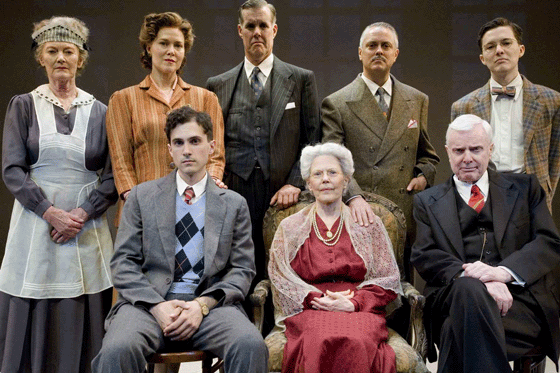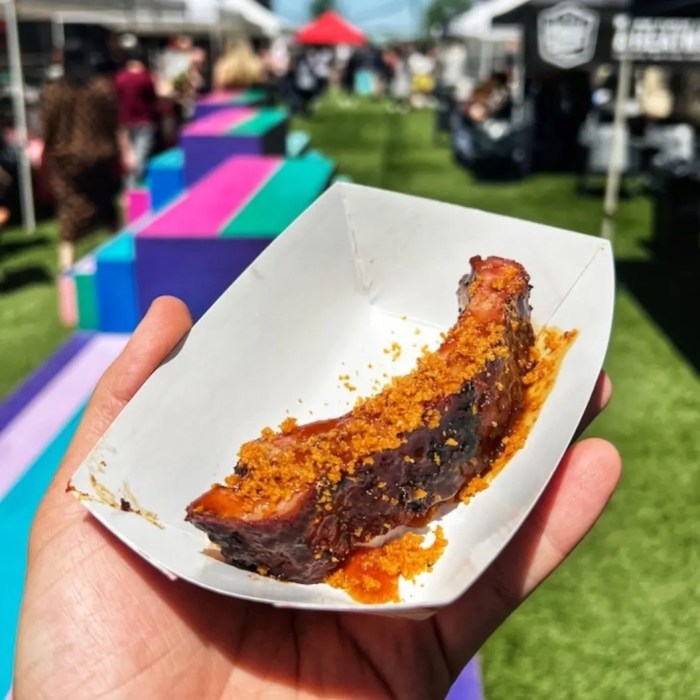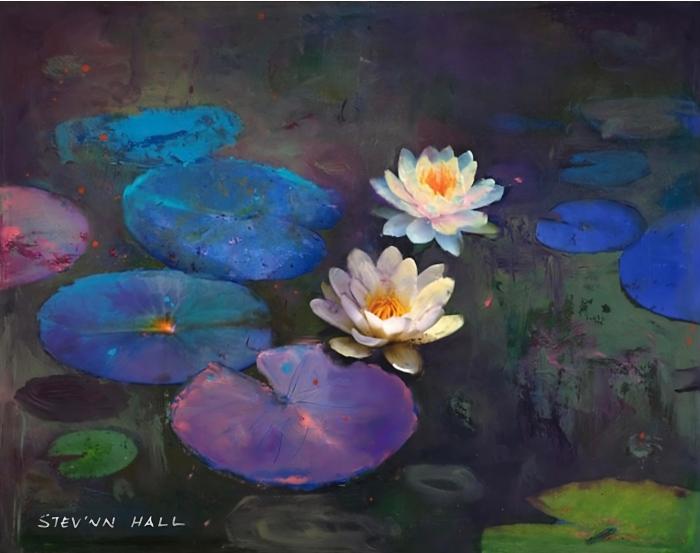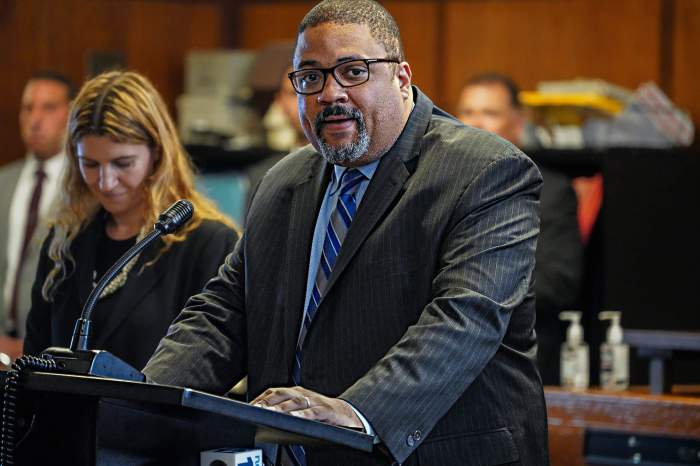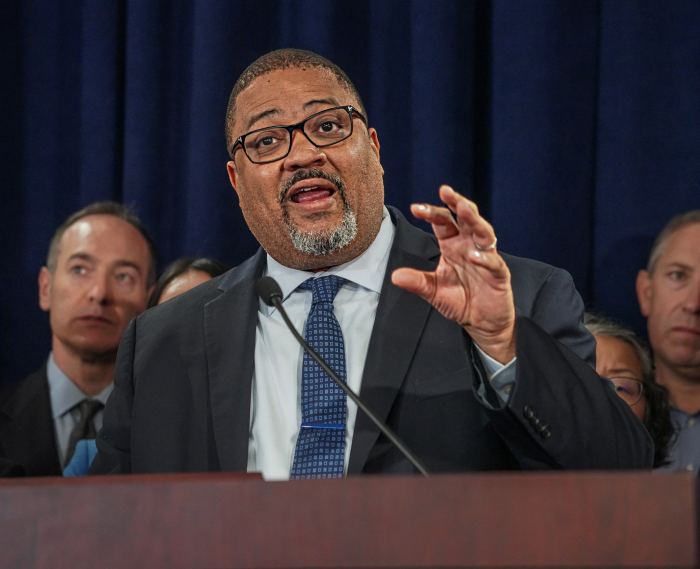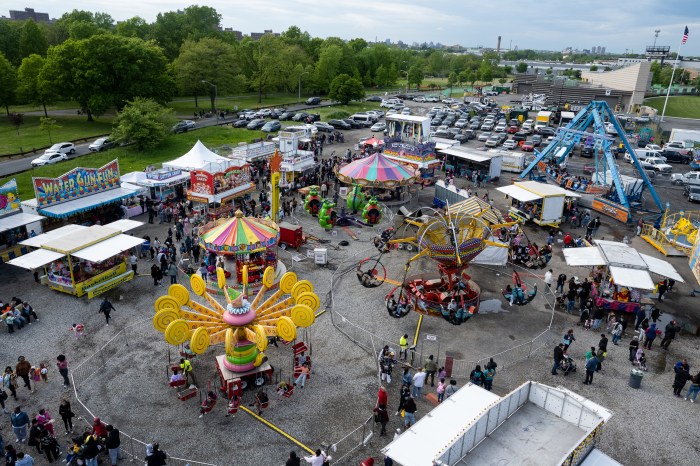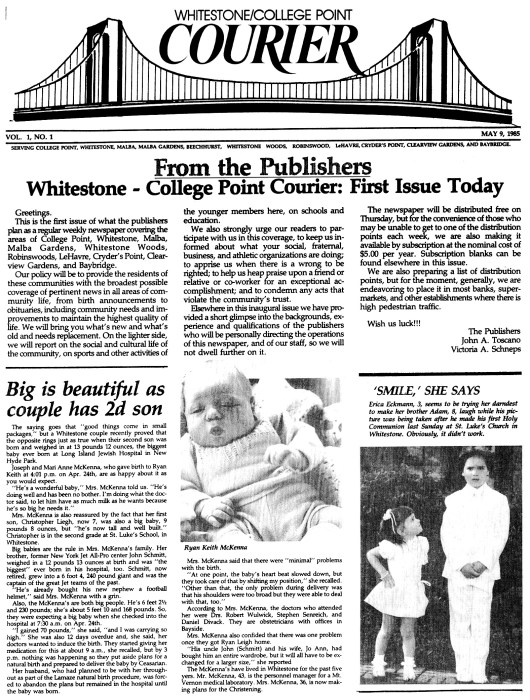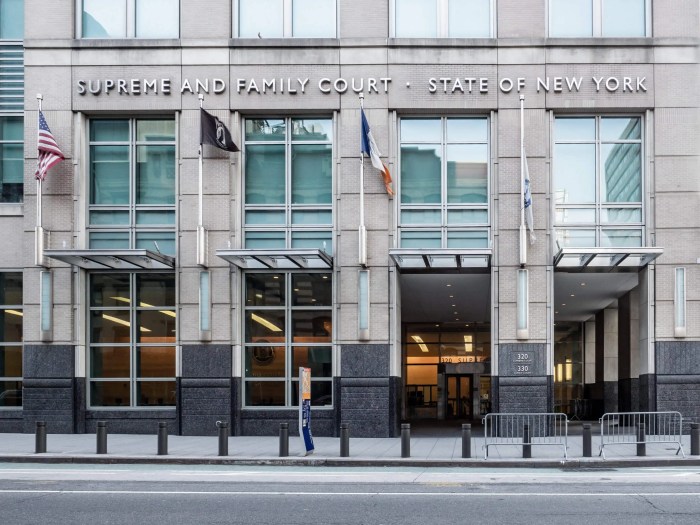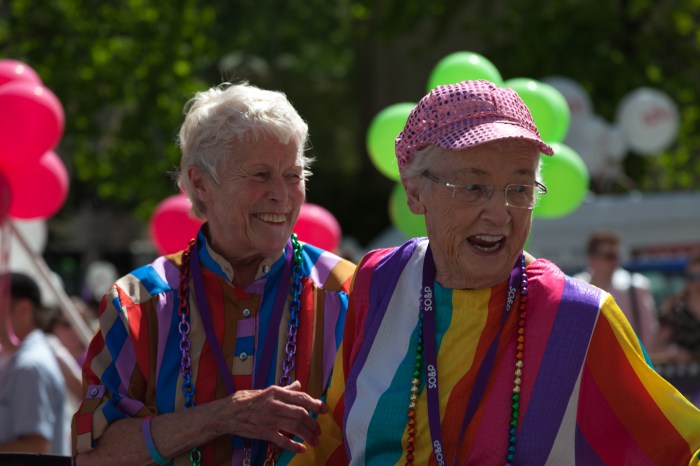By JERRY TALLMER
You can take the boy out of Buffalo, but you can’t take Buffalo out of the boy.
Though sometimes it does take a while for the boy to go back to the boy he was in the Buffalo that was. Like 60 years.
“I was 60 when the idea of Indian blood [in his own family] came into my head,” says A. R. Gurney, who was born in Buffalo 76 years ago come November 1. “The play’s been rolling around in my brain for ten years. I tried it first as a short story, but that didn’t work. Finally completed it about a year ago. It has a lot of echoes of other plays of mine.”
Here is how A.R. (Pete) Gurney’s “Indian Blood,” now showing through September 2 at 59E59 Theaters, begins. The kid in the spotlight is Eddie, 15 going on 16:
This is a play about me when I was growing up in the city of Buffalo, New York, which began as an Indian trading post at the mouth of Lake Erie. Because of the Erie Canal, we became the Gateway to the Midwest and the Queen City of the Great Lakes, but nowadays the city is in trouble, so my History teacher calls us the Mistake on the Lake.
O.K., but in 1946, which is when I’m talking about …
If you hear not so very distant echoes there of a Stage Manager in another, older play telling you some of the facts about Grovers Corners, New Hampshire, well, Pete Gurney pays direct tribute to “Our Town” when Eddie talks about it halfway through this play. Which, like “Our Town,” is staged virtually without scenery, and in which at one point you will see an automobile thrown together out of a couple of chairs, also a la Thornton Wilder.
Eddie, when we meet him, is in deep trouble. He has been hauled before Mr. Kenyon, the schoolmaster, for drawing, not too surreptitiously, in the back row of class, a picture of Injun Joe — “from ‘Tom Sawyer,’ by Mark Twain, which we read in the seventh grade,” Eddie reminds Mr. Kenyon — standing ready, shall we say, to put a certain matter to Glinda the Good of “The Wizard of Oz.” They are not wearing clothes.
Eddie is in this jam because his loathsome cousin Lambert, the squealer, has squealed on him to the authorities, and is now in possession of that very same crumpled-up drawing, with which he’s about to blackmail Eddie — maybe show it to Eddie’s grandmother in front of the whole family at Christmas. Whereupon Gog, as Eddie affectionately calls his grandmother, will probably die of the weak heart that she proclaims to one and all in every fourth or fifth sentence.
Gog even has a chair to rest on at the landing as she comes downstairs. The chair is put there faithfully by Annie the maid. Gog does not treat Annie very well.
ANNIE sneezes.
GRANDMOTHER: Did you hear that?
EDDIE: Hear what?
GRANDMOTHER: That noise she made.
EDDIE: She sneezed, that’s all, Gog.
GRANDMOTHER: She doesn’t have to sneeze.
EDDIE: Maybe she’s got a cold.
GRANDMOTHER: She doesn’t have to get a cold …
“Indian Blood” is a play full of love of family in a vanished world, but, says Gurney, “there were some horrible things” about that world, that family, “especially the treatment of the maids. The thing about Annie sneezing really happened. She worked all her life for my grandparents, and when my grandmother died she left Annie” — he makes a grievous face — “$500.”
I love your mother, this play-reader said to the playwright.
That is to say, Eddie’s mother in “Indian Blood,” who clearly loathes her mother-in-law — the grandmother to whose apron strings Eddie’s father has been tied all his life. That loathing, says the actual Eddie, “is absolutely true,” except that Eddie’s mother in the play may be “a little more rebellious” than her real-life prototype.
When the phrase “prolific playwright” was invented, it was there to be applied to A.R. Gurney, who has been among us, in volume, ever since his dry, ironic “The David Show,” which ran for all of one performance in October 1968 at the Players’ Theater on MacDougal Street — killed in its cradle by sneers from the entire press except for two enthusiasts, Edith Oliver in The New Yorker and some fellow in The Village Voice.
Now, 30 or 40 or 50 plays later, Gurney is asked: Have you ever, in any form, been so directly autobiographical as here in “Indian Blood”?
“Never.”
The business of loathsome squealer cousin Lambert threatening to show the dirty drawing to their grandmother at the family’s Christmas gathering is fabricated, Gurney says, as is Lambert himself — “I have to tell you, there are elements of me in him, I kind of divided myself into two types” — but almost all else is genuine.
That lost world was also a WASP world. There was no actual Indian blood in Eddie’s veins, much as the kid may have wished it, or fantasized it. The most exotic creatures then at hand were Buffalo’s Jews.
EDDIE’S FATHER: Where is that boy? … On the telephone? On Christmas night?
EDDIE’S MOTHER: I think he’s talking to one of the Nussbaumer girls.
FATHER: He’s interested in girls now?
MOTHER: At least in little Peggy Nussbaumer …
FATHER: Is Peggy Nussbaumer a Jewess?
MOTHER: Harvey! … I don’t know whether she is or not.
FATHER: She may easily be a Jewess.
MOTHER: Harvey! Stop saying that! You can’t say Jewess or Negress or any of those things any more.
“Our family’s attitude toward Jews was very complicated,” says Pete Gurney. “My mother” — Marian Spaulding Gurney — “knew that Jews were the seed of culture. My father” — Albert Ramsdell Gurney, Sr. — “always thought the Jews worked too hard. ‘They get up an hour earlier than you.’
“In some ways yes, he was prejudiced, in some ways no. He had several Jewish friends, but would never combine them with his social life except when traveling [away from Buffalo]. He vetoed his friend Howard Saperstein from membership in the Buffalo Saturn Club because, he said, the club was so prejudiced, he didn’t want Howard to be uncomfortable.”
If Eddie’s drawing of Indian Joe and Glinda the Good is fictitious, the four-letter words in “Scenes From American Life,” the Gurney play at Lincoln Center in the spring of 1971, were real enough.
“It poked fun at some of the customs and the sexual side of my grandparents, who were dead. It really shocked my parents. My father wouldn’t speak to me.”
It may be the Mistake on the Lake, but “Buffalo’s been wonderful fertile territory” for Gurney. “Every other play has references to it. Sometimes I don’t name the city. The [subsidiary] characters in this play — Charlie the barber, Mr. Kenyon the teacher, Miss Bacon the dental hygienist — are all people I grew up with.”
Gurney really went to Mr. Kenyon’s Nichols School, and then to St. Paul’s in Concord, New Hampshire. “A great school, with a good theater department. Two of my children went there [Pete and Molly Gurney are the parents of four children]. Our grandson goes there now.”
After the Navy, and the Yale School of Drama (on a J. Walter Thompson fellowship), Gurney came down to New York to write for television.
“I called my mother and said: ‘I don’t know any girls down here.’ She said: ‘Wait a minute, I think Molly Goodyear is in New York.’ She was a girl from Buffalo, five years younger than me.”
She was indeed in New York, and they have indeed been married ever since.
“A final irony. After my father died and Molly’s mother died, my mother married Molly’s father.” Beat. “And I put it in a play before it happened. It was ‘The Middle Ages’ [York Theater at St. Peter’s, 1983], and Jack Gilpin, who was in that play, is Harvey, the father in this one.”
Mr. Gilpin is joined there by Rebecca Luker (as Eddie’s mother), Pamela Payton-Wright (the grandmother), John McMartin (the grandfather), Charles Socarides (Eddie), Jeremy Blackman (Lambert), with Matthew Arkin and Kate McGrath in various other roles. All under the direction of Mark Lamos.
Oh yes. “Our Town.” Thornton Wilder.
“I put mention of it halfway through this play on purpose. To me, ‘Our Town’ is major — absolutely. When I was at Yale, Wilder was holding court at the Old Heidelberg in New Haven. I used to go there and sit at his knee. ‘Our Town’ says: This is happening all over the world. My play says: The things that happened then are no longer happening all over the world.”
Except in our heads, and our souls.
INDIAN BLOOD. By A.R. Gurney. Directed by Mark Lamos. Through September 2 as a Primary Stages presentation at 59E59 Theaters, (212) 279-4200.



